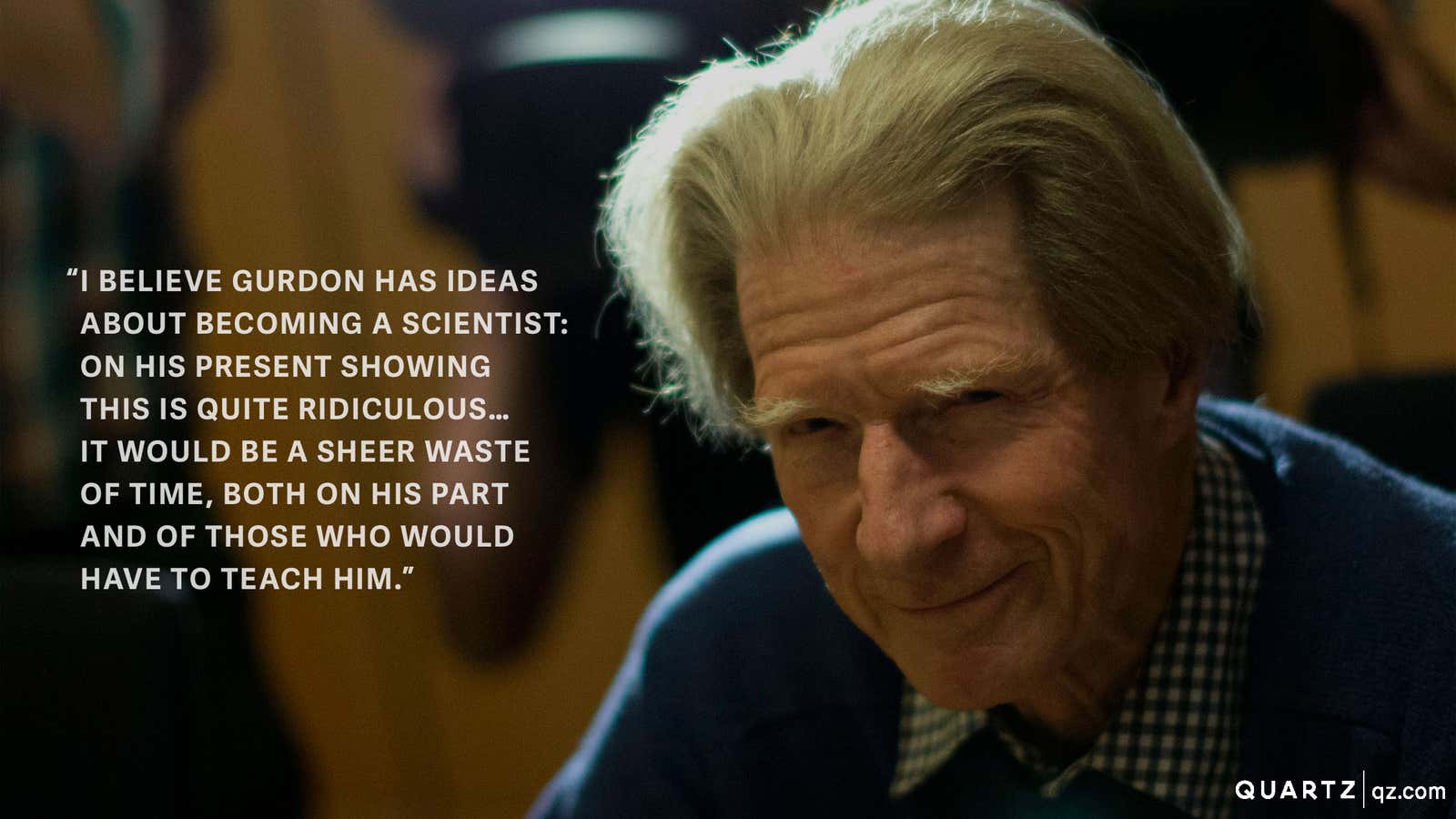British scientist John Gurdon, 79, of the Gurdon Institute in Cambridge, UK, won the Nobel Prize in Medicine on Oct. 8 for what the Nobel Assembly called “groundbreaking discoveries [that] have completely changed our view of the development and specialization of cells.” He shared the prize with Shinya Yamanaka, 50, of Kyoto University in Japan, who built on Gurdon’s findings.
In 1962, Gurdon became the first scientist to successfully clone an animal, using the egg of a frog to make a healthy tadpole. Yet Gurdon was a hair’s-breadth from never becoming a scientist at all. In a school report, Gurdon’s childhood biology teacher once scoffed at his ambitions to become a scientist.
Gurdon says he keeps the report in a frame above his desk “for my amusement.”
